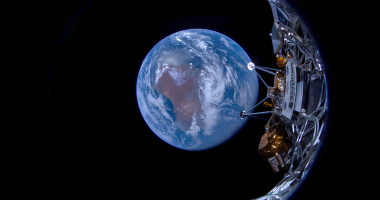
Nothing embodied the promise of globalization more than the humble supply chain. Thanks to the integration of production across and within borders, consumers have come to expect infinite variety, instantly available.
That is now under siege. The supply-chain crisis of 2021 is fueling the retreat from globalization, much as the global financial crisis of 2008 did.
Three big forces are driving this latest crisis: Covid-19, climate and geopolitics. All have played a part in the semiconductor shortage that has crippled automotive production world-wide. Covid-19-driven demand for consumer electronics diverted chips from car makers, and virus-control measures interrupted production in Malaysia. Extreme weather idled chip factories in Texas and threatened to do the same in Taiwan. And U.S. tariffs and export bans ran down chip inventories in the U.S. while prompting hoarding by Chinese buyers, according to Chad Bown of the Peterson Institute for International Economics.
Those forces also contributed to Britain’s energy crisis. Covid-19 and Brexit reduced the number of truckers available to deliver fuel while a lack of wind reduced renewable power at a time when natural-gas reserves were low. China’s economy has been tripped up by shutdowns intended to stamp out all Covid-19 outbreaks or meet carbon reduction goals, and coal shortages were aggravated by a punitive ban on imports from Australia for demanding an inquiry into Covid-19’s origins.
Two decades ago, investors and bankers took for granted that credit would always be available at some price and built entire businesses around that premise. The result was a tightly interconnected financial system with no margin for error that seized up in the face of a shock.
Similarly, the supply-chain crisis was made possible by how integrated and efficient global production had become. Businesses adopted outsourcing and offshoring, just-in-time inventories, and “capital-light” models that split design from production. The share of world trade accounted for by global value chains—in which a product crosses at least two borders—rose from 37% in 1970 to 52% in 2008, where it plateaued, according to the World Bank.
Today, companies and governments are waking up to the risks of dependence on far-flung suppliers and the absence of shock absorbers in vital links, from seaborne freight to electricity transmission.
Covid-19 is the biggest shock to this system, shutting down production, closing borders and driving workers out of the labor force. A mutating virus, resistance to vaccine mandates and China’s zero-Covid-19 policy all mean Covid-19 remains a threat to the supply chain. But it should recede as natural immunity and vaccination reduce the virus’s lethality and governments outside China conclude restrictions and border closures are too costly a response to outbreaks.
Climate risks are likely to grow, due to both more frequent extreme weather and the transition to renewable energy, which lacks the capacity buffers of fossil fuels. The oil market is global: Supply in one place can meet demand in another. While oil’s price can gyrate, supply almost never disappears thanks to spare OPEC capacity, private inventories and government-maintained emergency reserves. Though less mobile than oil, natural gas can still be stored and, increasingly, exported in liquid form.
By contrast, solar and wind energy are generally consumed as they are generated, and can disappear altogether if wind or sun are absent. “No clean energy OPEC currently holds spare renewable energy capacity in reserve,” notes Kevin Book, research director of advisory ClearView Energy Partners LLC, in a recent report. This can only be solved through investment in transmission and battery storage, which lags far behind investment in generation, the International Energy Agency indicated last week, even as investment in fossil fuels flattens. “Something has to change quickly or global energy markets face a turbulent period ahead,” it warned.
Protectionism has been intruding on supply chains at least since 2008 when the Doha round of global trade talks collapsed. The U.S.-China trade war took those frictions to a new level. In its wake, the U.S., China and Europe are all pursuing self-sufficiency in key sectors such as semiconductors and batteries. Other threats loom, such as green tariffs on high-carbon imports. Meanwhile, arbitrary import bans and detentions are now routine parts of China’s foreign-policy tool kit, as export controls are part of the U.S.’s. Former President Donald Trump’s regular threat of sanctions and tariffs to further domestic goals ended when he left office, but companies and trading partners must plan for his possible return in a few years.
Not all the pressures on supply chains are against globalization. Technology continues to increase the potential to outsource, especially in services. Nonetheless companies are likely to revisit practices they once took for granted such as holding minimal inventories and sourcing key components from politically risky places. In a report this week, Bank of America equity strategists found companies in the S&P 500 index had 2% more manufacturing locations in the U.S. in 2000 compared with 2018, but 5% fewer in Asia.
Just as the financial crisis drove banks and regulators to prioritize resilience over efficiency, the supply-chain crisis will likely result in production networks more resilient to surprises but less able to delight consumers with ever more choice at ever lower cost.
Write to Greg Ip at [email protected]
Copyright ©2021 Dow Jones & Company, Inc. All Rights Reserved. 87990cbe856818d5eddac44c7b1cdeb8








